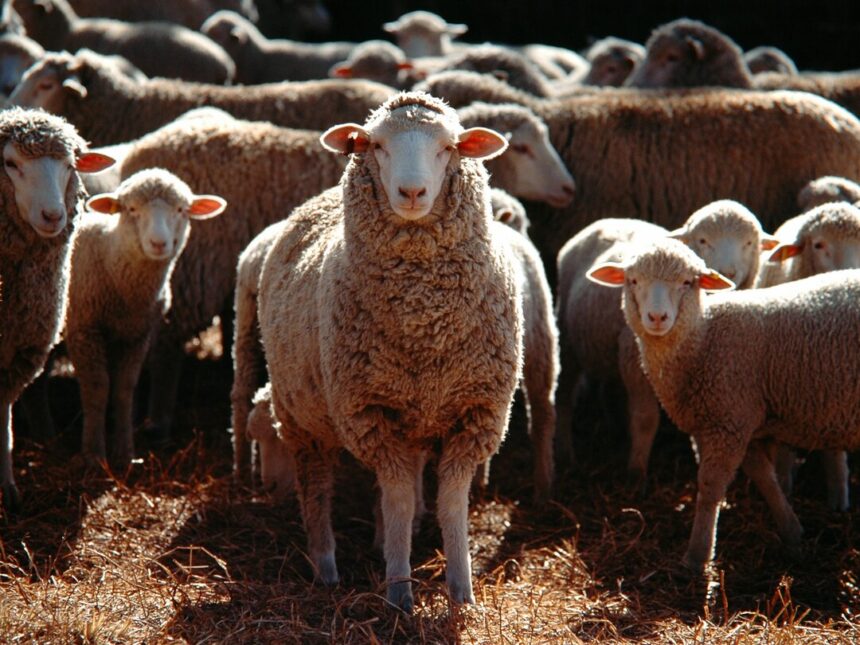Afrino sheep, a breed native to South Africa, have been gaining attention among farmers and breeders for their unique characteristics, adaptability, and potential for meat and wool production. With their distinctive appearance and resilient nature, Afrino sheep offer numerous benefits for farmers seeking sustainable and profitable livestock ventures in the country. Here are ten key aspects to consider when breeding and farming Afrino sheep in South Africa:
- Origins and Heritage:
Afrino sheep have a rich heritage rooted in South Africa’s diverse landscapes and agricultural traditions. Bred for generations by local farmers, these sheep are well-adapted to the country’s varied climates and environments. - Distinctive Appearance:
Afrino sheep are known for their striking appearance, characterized by a medium-sized frame, sturdy build, and dense fleece. They typically have a white or cream-colored fleece, with some individuals exhibiting black or brown markings. - Adaptability and Resilience:
One of the primary advantages of Afrino sheep is their adaptability to various environmental conditions. Bred for centuries to withstand South Africa’s diverse climates, these sheep exhibit resilience to heat, cold, and other environmental stressors, making them well-suited to extensive farming systems. - Wool Quality and Production:
Afrino sheep produce a dense fleece with good staple length and crimp, making it suitable for a variety of textile applications. The wool is prized for its softness, elasticity, and natural luster, making it highly sought after by textile manufacturers and artisans. - Meat Production:
Afrino sheep are also valued for their meat production potential. The breed produces flavorful, tender meat with excellent marbling and texture, making it well-suited to both commercial and specialty markets. - Reproduction and Fertility:
Afrino sheep are known for their reproductive efficiency and maternal instincts, making them an attractive option for breeding programs. Ewes exhibit good mothering abilities, high conception rates, and strong maternal instincts, resulting in healthy lambs and increased productivity. - Grazing and Foraging Abilities:
Afrino sheep excel in grazing and foraging, thanks to their natural instincts and robust constitution. They have a keen sense of smell and a voracious appetite for a variety of vegetation types, allowing them to thrive on pasture and forage-based diets. - Temperament and Handling:
Afrino sheep are known for their docile temperament and calm demeanor, making them easy to handle and manage. Their gentle nature reduces stress during handling, transportation, and breeding activities, contributing to overall flock welfare and productivity. - Genetic Selection and Improvement:
Effective genetic selection is essential for maximizing the potential of Afrino sheep flocks. Breeders focus on traits such as wool quality, meat production, reproductive efficiency, and adaptability when selecting breeding stock to improve flock performance and profitability over time. - Market Demand and Profitability:
With increasing consumer interest in sustainably produced wool and lamb products, the market for Afrino sheep continues to grow in South Africa. Producers can capitalize on the breed’s unique characteristics, wool quality, and meat production potential to meet the demand for premium wool and lamb products and achieve greater profitability in the sheep industry.
Breeding and farming Afrino sheep in South Africa offer numerous advantages for producers seeking resilient, high-quality livestock with excellent wool and meat production potential. By understanding the breed’s characteristics, reproductive traits, and market potential, farmers can effectively incorporate Afrino sheep into their operations and contribute to the sustainability and success of the sheep industry in South Africa.
Join 'Farmers Mag' WhatsApp Channel
Get the latest Farming news and tips delivered straight to your WhatsApp
CLICK HERE TO JOIN






